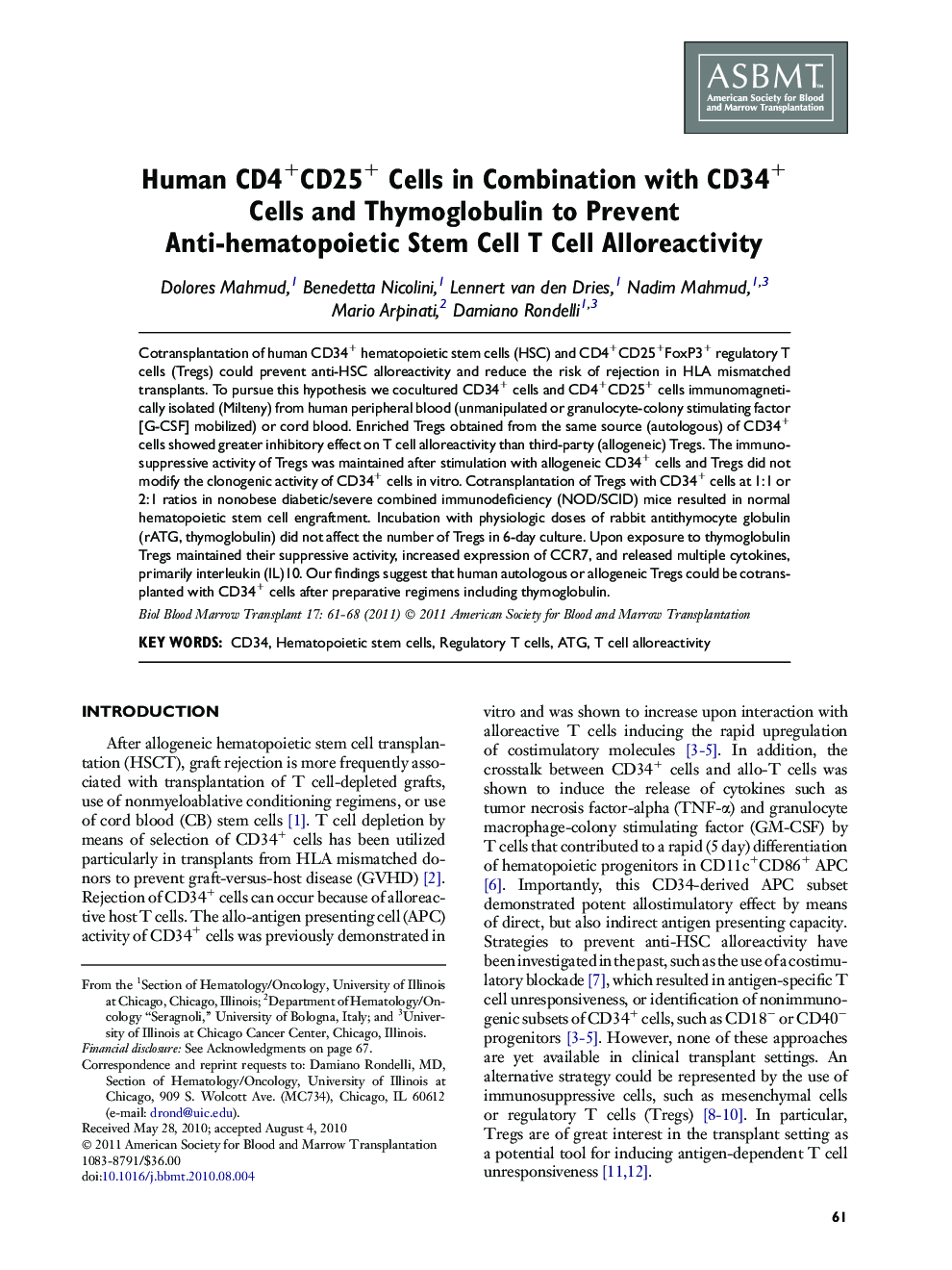| Article ID | Journal | Published Year | Pages | File Type |
|---|---|---|---|---|
| 2104013 | Biology of Blood and Marrow Transplantation | 2011 | 8 Pages |
Cotransplantation of human CD34+ hematopoietic stem cells (HSC) and CD4+CD25+FoxP3+ regulatory T cells (Tregs) could prevent anti-HSC alloreactivity and reduce the risk of rejection in HLA mismatched transplants. To pursue this hypothesis we cocultured CD34+ cells and CD4+CD25+ cells immunomagnetically isolated (Milteny) from human peripheral blood (unmanipulated or granulocyte-colony stimulating factor [G-CSF] mobilized) or cord blood. Enriched Tregs obtained from the same source (autologous) of CD34+ cells showed greater inhibitory effect on T cell alloreactivity than third-party (allogeneic) Tregs. The immunosuppressive activity of Tregs was maintained after stimulation with allogeneic CD34+ cells and Tregs did not modify the clonogenic activity of CD34+ cells in vitro. Cotransplantation of Tregs with CD34+ cells at 1:1 or 2:1 ratios in nonobese diabetic/severe combined immunodeficiency (NOD/SCID) mice resulted in normal hematopoietic stem cell engraftment. Incubation with physiologic doses of rabbit antithymocyte globulin (rATG, thymoglobulin) did not affect the number of Tregs in 6-day culture. Upon exposure to thymoglobulin Tregs maintained their suppressive activity, increased expression of CCR7, and released multiple cytokines, primarily interleukin (IL)10. Our findings suggest that human autologous or allogeneic Tregs could be cotransplanted with CD34+ cells after preparative regimens including thymoglobulin.
